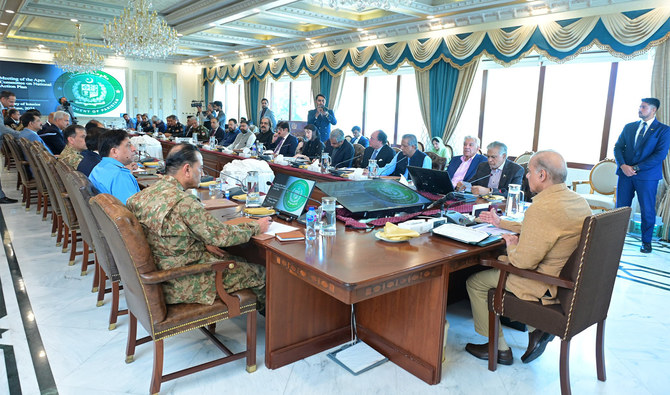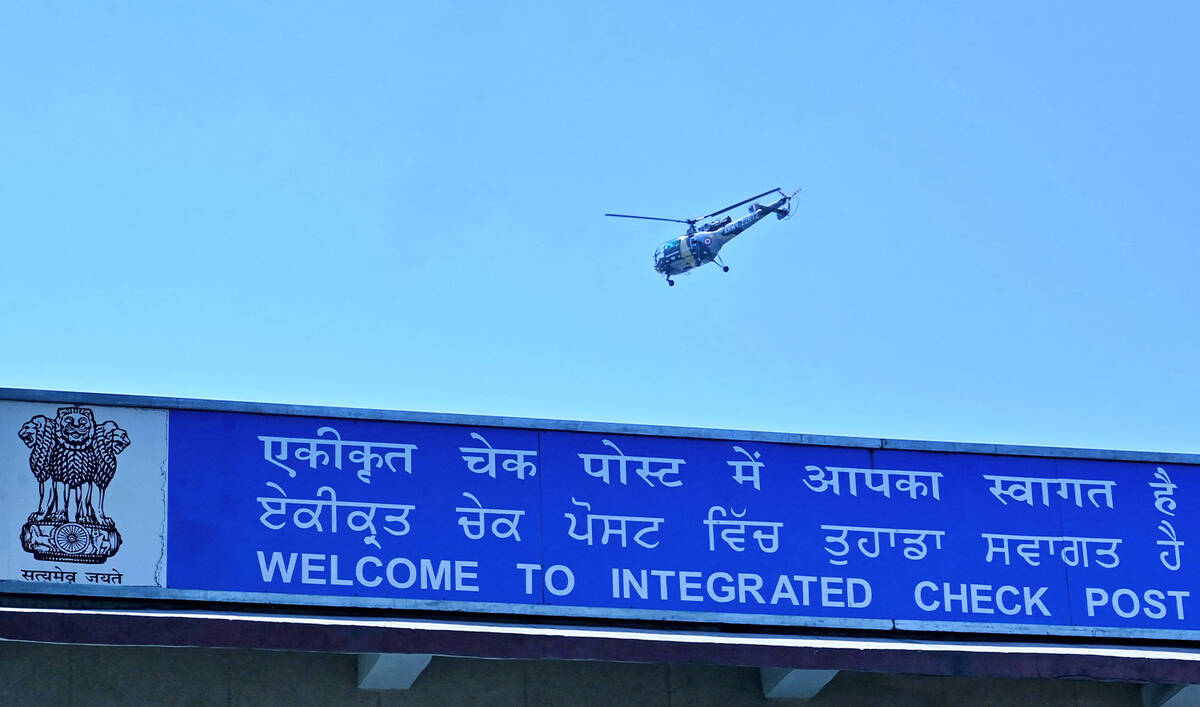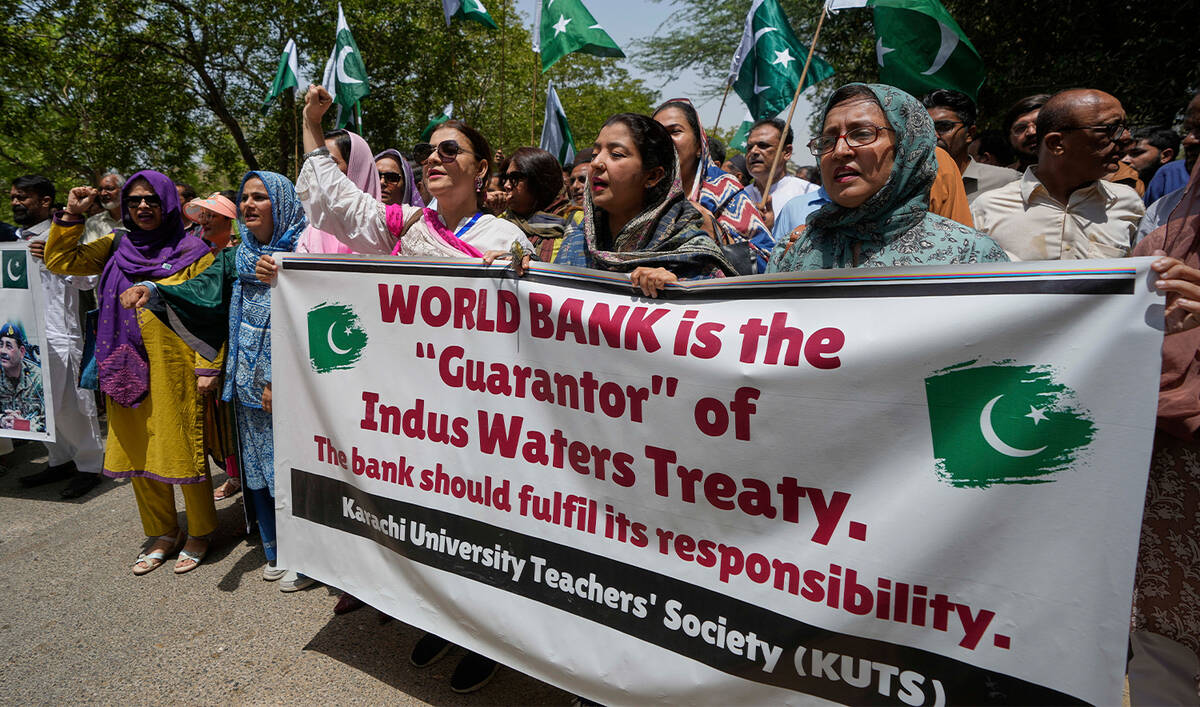ISLAMABAD: Prime Minister Shehbaz Sharif this week clarified that the government’s new anti-terrorism operation will not be a large-scale military operation that would cause people to be displaced, amid growing opposition by Pakistani political parties who accuse authorities of not taking them into confidence on the matter.
Pakistan’s top national security forum on Saturday announced the Operation Azm-e-Istehkam, or Resolve for Stability, campaign after a meeting of the Central Apex Committee on the National Action Plan (NAP) that was attended by senior military leaders and top government officials from all provinces, including the PTI-backed Khyber Pakhtunkhwa Chief Minister Ali Amin Gandapur.
However, the PTI and Jamiat Ulama-e-Islam-Fazl (JUI-F), two key political parties in the militancy-hit Khyber Pakhtunkhwa (KP) province, have rejected the military operation. Leaders of both parties have called on the government to take lawmakers into confidence about the new operation.
In a statement released by his office on Monday night, Sharif said Operation Azm-e-Istehkam is being “misunderstood” and compared to previous military operations such as Operation Zarb-e-Azb and Operation Rah-e-Nijat. He said militants in these operations were killed for creating “no-go areas” in the country and for challenging the writ of the state, adding that they caused massive displacement of the population.
“There are currently no such no-go areas in the country as the ability of terrorist organizations to carry out large-scale organized operations inside Pakistan has been decisively defeated by past armed operations,” Sharif was quoted as saying.
“Therefore, no large-scale military operation which would require population displacement is being contemplated,” he added.
The statement clarified that Operation Azm-e-Istekam is a multi-domain, multi-agency and national vision to bring about sustainable peace and stability in the country.
“Its objective is to instill a new spirit and drive in the ongoing implementation of the revised National Action Plan, which was launched after a national consensus in the political arena,” the statement added.
The PMO said the operation would mobilize military operations that have already been launched against militants and aim to eliminate them out of the country for good. It said this would ensure a secure environment for the country’s economic progress and prosperity.
Sharif said everyone should welcome this “positive step” by the government, saying it had been taken with collective wisdom and after forming a political consensus among various stakeholders. He called for putting an end to “unnecessary debate” on the issue.
Speaking to a private news channel on Sunday, Defense Minister Khawaja Asif said a consensus was reached on the new military operation between all stakeholders during the apex committee’s meeting last week. He said the decision to launch Operation Azm-e-Istehkam had not been “finalized.”
“It will go through the process,” Asif said. “It will go to the cabinet [for approval] then it will be presented in the house and the house will be briefed on it.”
Pakistan has witnessed a surge in militant attacks in recent months, many of them claimed by the Tehreek-e-Taliban Pakistan (TTP), which pledges allegiance to, and gets its name from, the Afghan Taliban, but is not directly a part of the group that now rules Afghanistan. Its stated aim is to impose Islamic religious law in Pakistan, as the Taliban have done in Afghanistan.
Islamabad blames the recent uptick in attacks on Afghanistan, saying TTP leaders have taken refuge there and run camps to train militants to launch attacks inside Pakistan. Kabul says rising violence in Pakistan is a domestic issue for Islamabad and it does not allow militants to operate on its territory.




















